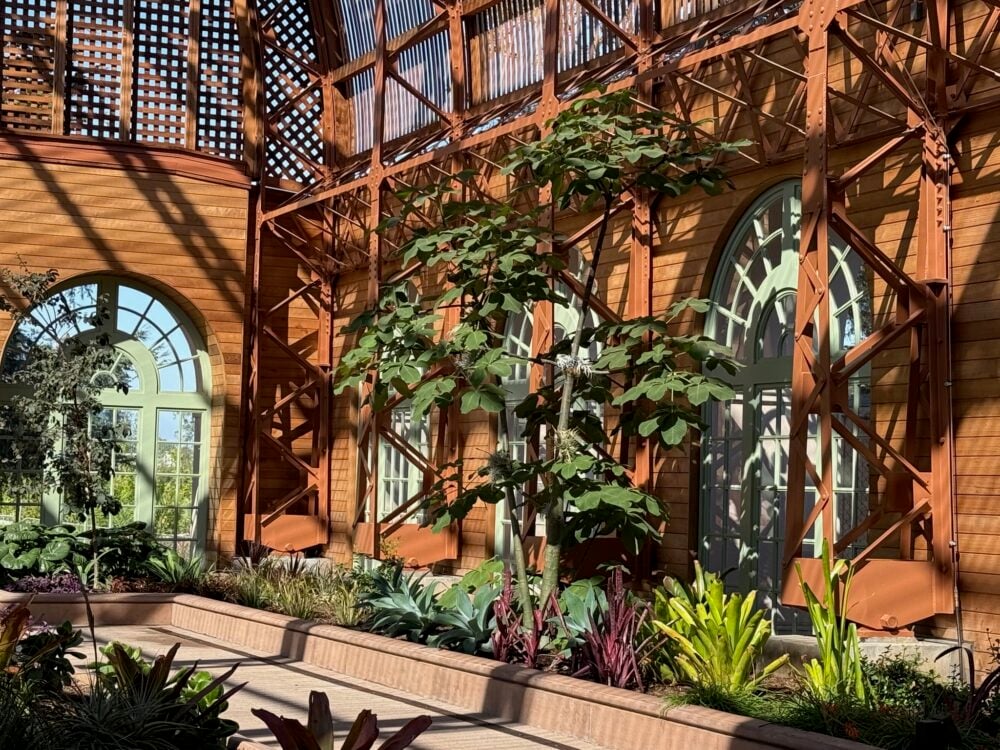
Contributor
- Topics: Archive
Editor Lorene Edwards Forkner posed the following four questions to gardening professionals who are designers, writers, community activists or a combination of all of the above. Just like in the garden – the brilliance is in the mix.
Why does gardening matter?
How does where you garden factor into how you garden?
What motivates/inspires you?
Take away tip?
Wendy Welch
– Like art, gardening matters because it adds beauty to the world. Historically, Goodness, Truth, and Beauty were equally valued. They gave meaning to life and achieving these ideals was a sacred pursuit. Beauty has always been a salve to remedy chaos, something that’s especially needed in an urban environment. Beauty brings people together and affects our emotional and spiritual lives in a positive way which in turn changes what we have to offer the world around us in a continual virtuous cycle.
– Context has the greatest impact on how I design gardens. Creating spaces that meet the needs of my client’s aesthetics and lifestyle is the foundation. Whether it’s a private residence or a public space, I try and create an environment that will bring joy and improve the lives of people who will interact with the finished garden. Every project is a new beginning.
– Aesthetically the planting styles of Piet Oudolf and Patrick Blanc really get my creative juices going. On a social level, I can’t get enough of what Lynden Miller and Alice Waters have contributed to the contemporary discussion of public gardens and their power to build community and positively impact people’s experience.
– Don’t apologize for beauty. We can all have hard working, sustainable gardens that are good for the planet–I love a good bio-swale–but beauty is essential.
Wendy Welch is a Seattle-based garden designer with an ardent commitment to environmental stewardship. She is a member of the Great Plant Pick committee, on the design team at the innovative Seattle Children’s PlayGarden, and is Pacific Horticulture board member. www.wendywelchgardendesign.com.
Lucy Hardiman
– Gardening matters because it sustains life. From the Fertile Crescent and the beginning of agriculture along the Tigris, Euphrates, and Nile river valleys where crops supported settlements, to the present day, we are all nourished physically and emotionally by growing food and making beautiful gardens. The garden signifies continuity and our literal connection to the earth and each other.
– Regionalism is the key to abundant gardening. Your willingness to work with your climate, your soil, and your local growing conditions means the difference between a successful crop and disappointing failure. Folks try and grow peaches and apricots in Portland but odds are against a fruitful harvest; we just don’t have the heat and low humidity those fruits need to flourish. With our mild climate–and a few tricks up our sleeves–here in western Oregon we can eat from the garden almost year round. That’s a lot of delicious food and satisfies a very basic instinct: providing for those we love.
– Gardening is in my genes. Growing food and providing for family, friends, and my community is second nature to me. Today I’m passing that experience along through a mentoring program at our local community garden plot where new gardeners work alongside seasoned growers planting, tending, and harvesting. It’s a wonderful example of cooperative action and sharing. We extend our help into the greater community with our “Produce for People Plot” where we all chip in to grow food for our local food bank and others who need it.
– Look around and see who you can feed.
Lucy Hardiman was to the garden born and is a fifth generation Oregon gardener. She is the principal of Perennial Partners, a garden design collaborative. www.lucyflora.com.
Annie Spiegelman
– Gardening matters because soil matters. There are more living microorganisms in one cup of fertile soil from the garden than there are human beings on the entire planet. Gardening teaches us to respect the land and the precious ecosystems that feed us.
– After being raised and hardened in New York City, I escaped in my twenties, for shallow reasons: the weather. Fleeing gloom and ice, I moved to San Francisco near Golden Gate Park where I was determined to start my first garden. Seeking sun, I met FOG. I made every mistake novice gardeners make: wrong plants in the wrong place, too many chemicals = dead plants.
– I’m motivated by teenagers! As the coordinator of two high school gardens I’m trying to turn kids into lifelong tree-huggers, flower enthusiasts, and kale eaters. The United States rates number one globally in childhood obesity. What is wrong with us?! My favorite part of the job is snatching away their bag of chips as they walk into the garden.
– Go play in the dirt! Surround yourself with gardeners, farmers, and people with dirty fingernails. You’ll be happier. When Christopher Lowry, a neuroscientist at the University of Bristol in England, injected a soil bacterium, Mycobacterium vaccae, into mice he found significant increases in their serotonin levels; the same effect as antidepressant drugs. You get a dose of M. vaccae just by taking a walk in the wild or rooting around in your garden.
Annie Spiegelman gardens in the Bay Area, is the author of Talking Dirt: The Dirt Diva’s Down-to-Earth Guide to Organic Gardening, and queen bee at www.dirtdiva.com .
Emily Green
– Gardening matters because it’s stewardship of the land.
– Gardening with the climate is the highest form of horticulture. It’s like moving perfectly with a dance partner. If your garden requires constant “maintenance,” then you’re out of step with where you garden.
– I’m inspired by what happens when I don’t dominate the landscape.
– Apart from food gardens, try going native, plant sparingly, and always edit intelligently.
Emily Green is an environment writer based in Altadena, California. She gardens and writes. www.chanceofrain.com.








Responses